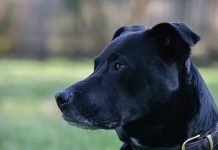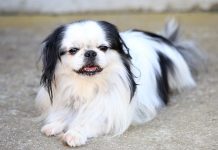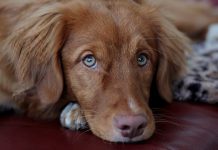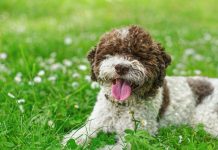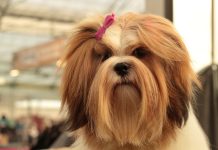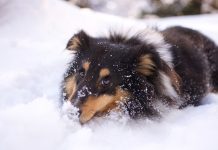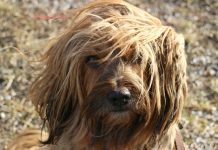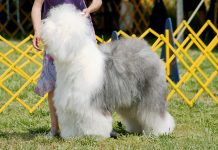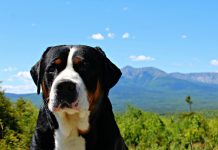History and Origins of the Portuguese Water Dog Breed

The Portuguese Water Dog (PWD) is an ancient breed with a rich history that dates back several centuries. Here’s an overview of their history, origins, physical characteristics, and appearance:
History and Origins
- Ancient Roots: The Portuguese Water Dog is believed to have originated in the coastal region of Portugal, where they were employed by fishermen to assist with various tasks, such as retrieving nets, herding fish into nets, and even delivering messages between ships.
- Versatile Working Dog: Known for their swimming abilities and robust physique, Portuguese Water Dogs were highly valued for their versatility and contribution to maritime activities along the Portuguese coastline.
- Near Extinction: The breed faced a decline in numbers during the 20th century due to changes in fishing practices. However, dedicated breed enthusiasts worked tirelessly to revive and preserve the Portuguese Water Dog, ultimately leading to its resurgence as a beloved companion and working dog.
Physical Characteristics and Appearance
- Medium-Sized Build: Portuguese Water Dogs are medium-sized dogs with a sturdy and athletic build. They have a well-proportioned body and strong, muscular limbs, which contribute to their agility and swimming prowess.
- Distinctive Coat: One of the most recognizable features of the Portuguese Water Dog is its unique coat. They have a dense, curly or wavy coat that is water-resistant, making them well-suited for aquatic activities. The coat can be black, white, or various shades of brown (including black or brown with white markings).
- Facial Features: PWDs have expressive eyes that are typically dark in color and convey intelligence and attentiveness. They also have a distinctive beard and eyebrows, which add to their charming appearance.
- Tail and Ears: The tail of a Portuguese Water Dog is typically carried high and may be naturally bobbed or docked to a short length. Their ears are pendant-shaped and hang close to the head, framing the face.
- Size and Proportions: Adult Portuguese Water Dogs typically stand between 17 to 23 inches (43 to 58 cm) at the shoulder and weigh between 35 to 60 pounds (16 to 27 kg). They are well-muscled and agile, capable of quick movements and endurance.
- Gait and Movement: Portuguese Water Dogs have a smooth and fluid gait, reflecting their agility and athleticism. Their strong limbs and powerful hindquarters enable them to excel in various physical activities, both on land and in water.
Overall, the Portuguese Water Dog is a charming and versatile breed with a distinctive appearance and impressive abilities. They are known for their intelligence, loyalty, and affectionate nature, making them excellent companions for active families and individuals who enjoy outdoor adventures.
Temperament and Personality Traits
- Intelligent and Quick Learners: PWDs are highly intelligent dogs with a quick wit. They excel in learning new commands and tasks, making them well-suited for obedience training and various canine sports.
- Energetic and Active: Portuguese Water Dogs have a natural energy and stamina level. They thrive on physical activity and enjoy engaging in tasks that challenge them both mentally and physically.
- Affectionate and Loyal: PWDs form strong bonds with their families and are known for their affectionate nature. They enjoy being close to their human companions and are often eager to participate in family activities.
- Alert and Watchful: As a breed historically used for water work and guarding tasks, Portuguese Water Dogs are naturally alert and watchful. They are attentive to their surroundings and make good watchdogs.
- Friendly and Social: PWDs typically have a friendly and sociable demeanor. They are usually good with children and other pets when properly socialized from a young age.
- Adventurous and Water-Loving: True to their heritage, Portuguese Water Dogs are often enthusiastic swimmers and enjoy water activities. They have a natural affinity for water and are excellent swimmers.
- Independent Thinkers: While highly trainable, PWDs can also have an independent streak. They may try to test boundaries or find their own solutions to problems, requiring consistent training and positive reinforcement.
Training and Socialization Needs
- Early Socialization: It’s important to expose Portuguese Water Dogs to a variety of people, places, and experiences from an early age. This helps them develop into well-rounded and confident adult dogs.
- Positive Reinforcement Training: PWDs respond well to positive reinforcement training methods, such as praise, treats, and play. They enjoy learning new tricks and tasks and thrive on mental stimulation.
- Consistent Exercise: Portuguese Water Dogs need regular exercise to stay happy and healthy. Daily walks, playtime, and interactive games are essential to channel their energy in a positive way.
- Engagement and Mental Stimulation: Provide PWDs with interactive toys, puzzle games, and training sessions to keep their minds engaged. They enjoy having a job to do and thrive on activities that challenge their intelligence.
- Obedience Training: Enroll your Portuguese Water Dog in basic obedience classes to establish good manners and strengthen the bond between you and your dog. Consistent training helps prevent behavioral issues.
- Structured Activities: Consider participating in canine sports such as agility, dock diving, or obedience trials to provide your PWD with structured physical and mental activities.
By meeting the training and socialization needs of Portuguese Water Dogs, you can help them develop into well-behaved, confident, and happy companions. Their intelligence and eagerness to please make them wonderful family pets for active households willing to invest time and effort in their care and training.
Health Considerations and Common Issues in Portuguese Water Dogs
Portuguese Water Dogs (PWDs) are generally a healthy and robust breed, but like all dogs, they may be prone to certain health conditions. Here are some common health considerations and lifestyle factors to keep in mind when living with a Portuguese Water Dog:
Health Considerations
- Hip Dysplasia: This is a common orthopedic condition in many large and medium-sized breeds, including Portuguese Water Dogs. It occurs when the hip joint doesn’t develop properly, leading to arthritis and mobility issues. Regular vet check-ups and hip evaluations are recommended.
- Progressive Retinal Atrophy (PRA): PRA is an inherited degenerative eye disease that can lead to blindness over time. Responsible breeders perform eye screenings to reduce the incidence of PRA in PWDs.
- GM1 Gangliosidosis: This is a genetic disorder that affects the nervous system and can cause neurological symptoms. Genetic testing of breeding dogs helps prevent the transmission of this condition to puppies.
- Storage Disease (Storage): Another inherited metabolic disorder that affects PWDs, causing a buildup of certain substances in the body’s cells. Genetic testing helps identify carriers and prevent affected offspring.
- Heart Conditions: Some PWDs may be prone to heart diseases, such as dilated cardiomyopathy (DCM), which affects the heart’s ability to pump blood effectively. Regular veterinary examinations can help detect heart issues early.
- Allergies: Portuguese Water Dogs can develop allergies to environmental allergens, food ingredients, or flea bites. Symptoms may include itching, skin irritation, and ear infections. Consult with your vet for proper diagnosis and management.
Living with a Portuguese Water Dog: Suitable Environments and Lifestyle Considerations
- Active Lifestyle: Portuguese Water Dogs are energetic and require regular exercise to stay healthy and happy. They enjoy swimming, playing fetch, and participating in canine sports like agility or dock diving. Provide daily physical and mental stimulation to prevent boredom and destructive behaviors.
- Water Activities: PWDs have a natural affinity for water due to their heritage as working water dogs. If possible, provide opportunities for swimming and water play, especially during hot weather.
- Grooming Needs: The curly or wavy coat of a Portuguese Water Dog requires regular grooming to prevent mats and tangles. Brushing several times a week and professional grooming every few months are recommended.
- Socialization: Early and ongoing socialization is essential for Portuguese Water Dogs to develop good manners and confidence. Expose them to various environments, people, and other animals to prevent shyness or fearfulness.
- Training and Mental Stimulation: PWDs are intelligent and thrive on training and mental challenges. Engage them in obedience training, trick training, and interactive games to keep their minds sharp.
- Regular Veterinary Care: Schedule regular check-ups with your vet to monitor your PWD’s health and address any potential issues early. Stay up-to-date on vaccinations, parasite prevention, and dental care.
- Family Interaction: Portuguese Water Dogs are affectionate and thrive as part of the family. They enjoy spending time with their human companions and are generally good with children and other pets when properly socialized.
By providing a loving home environment, regular exercise, proper grooming, and veterinary care, Portuguese Water Dogs can thrive and be wonderful companions for active families or individuals who appreciate their intelligence and adventurous spirit. Choose a lifestyle that aligns with the breed’s needs and enjoy the rewarding experience of living with a Portuguese Water Dog.
Portuguese Water Dog Variations and Breeding Practices

Portuguese Water Dogs (PWDs) typically adhere closely to breed standards in terms of physical appearance and temperament. However, like all breeds, there can be some variations within the breed due to genetic diversity and individual characteristics. Here are some aspects related to variations and breeding practices in Portuguese Water Dogs:
Variations in Portuguese Water Dogs
- Coat Color and Texture:
- Portuguese Water Dogs can have a coat that is curly or wavy, and it is usually dense and water-resistant. Accepted coat colors according to breed standards include black, white, brown, or combinations of these colors (e.g., black with white markings, brown with white markings). Some PWDs may have a solid coat color, while others may have markings or patterns.
- Size and Build:
- Adult Portuguese Water Dogs typically range in height from 17 to 23 inches (43 to 58 cm) at the shoulder and weigh between 35 to 60 pounds (16 to 27 kg). However, there may be variations in size and build within the breed, with some individuals being slightly smaller or larger while still conforming to breed standards.
- Temperament:
- While Portuguese Water Dogs generally exhibit similar temperament traits, individual variations in personality can occur. Some may be more outgoing and playful, while others may be calmer and more reserved. Proper socialization and training play a crucial role in shaping a PWD’s temperament.
Breeding Practices for Portuguese Water Dogs
- Health Testing:
- Responsible breeders prioritize health testing to screen for genetic diseases common in Portuguese Water Dogs, such as hip dysplasia, progressive retinal atrophy (PRA), and storage diseases. Clearances from health screenings help ensure that breeding dogs are healthy and free from hereditary conditions.
- Conformation and Temperament:
- Ethical breeders carefully select breeding pairs based on conformation to breed standards and temperament traits. They aim to produce puppies that exemplify the breed’s characteristics, including intelligence, athleticism, and water-loving nature.
- Genetic Diversity:
- Maintaining genetic diversity is important in breeding Portuguese Water Dogs to prevent the propagation of inherited health issues and promote overall breed vitality. Responsible breeders may introduce new bloodlines or collaborate with other breeders to diversify the gene pool while adhering to breed standards.
- Ethical Practices:
- Reputable breeders prioritize the welfare of their dogs and adhere to ethical breeding practices. They provide proper care, nutrition, socialization, and veterinary attention to their breeding dogs and puppies.
- They prioritize finding suitable, loving homes for their puppies and offer ongoing support and guidance to puppy buyers.
- Club Affiliations:
- Many responsible breeders are affiliated with national breed clubs or kennel clubs that promote breed standards, health guidelines, and ethical breeding practices. Membership in these organizations helps breeders stay informed and connected within the breeding community.
By supporting responsible breeding practices and choosing reputable breeders who prioritize health, temperament, and adherence to breed standards, prospective Portuguese Water Dog owners can acquire healthy and well-adjusted puppies that embody the breed’s distinctive traits and characteristics. Ethical breeding practices contribute to the preservation and improvement of the Portuguese Water Dog breed for future generations.
50 Best Names with Meanings for Portuguese Water Dogs
Choosing a meaningful and fitting name for your Portuguese Water Dog (PWD) can be a delightful task. Here’s a list of 50 unique names along with their meanings that you might consider for your PWD:
- Aqua – Latin for “water,” perfect for a water-loving breed.
- Marina – Derived from Latin, meaning “of the sea” or “from the sea.”
- Splash – Reflects your PWD’s love for splashing in water.
- Rio – Spanish and Portuguese for “river.”
- Coral – Inspired by underwater coral reefs.
- Nalu – Hawaiian for “wave,” ideal for a sea-loving dog.
- Reef – Named after the colorful and vibrant coral reefs.
- Anchor – Represents stability and strength.
- Neptune – Named after the Roman god of the sea.
- Surf – Perfect for a PWD who loves surfing waves.
- Misty – Inspired by the mist and spray of the ocean.
- Sailor – Represents someone who navigates the seas.
- Wave – Reflects the rolling waves of the ocean.
- Bubbles – Symbolizes playfulness and energy.
- Poseidon – Named after the Greek god of the sea.
- Azure – Represents the blue color of the sea.
- Harbor – Symbolizes a safe place or refuge.
- Marlin – Inspired by the majestic marlin fish.
- Calypso – Named after the sea nymph in Greek mythology.
- Jetty – Represents a structure extending into the water.
- Tide – Reflects the ebb and flow of the ocean.
- Siren – Named after mythical sea creatures.
- Cascade – Represents the flowing movement of water.
- Bermuda – Inspired by the beautiful Bermuda waters.
- Anchor – Symbolizes stability and strength.
- Triton – Named after the messenger of the sea in Greek mythology.
- Kai – Hawaiian for “sea” or “ocean.”
- Corona – Represents the circle of light around the sun or moon on the water.
- Merman – Inspired by mythical male sea creatures.
- Waverly – Symbolizes the movement of waves.
- Ariel – Named after the spirited mermaid in “The Little Mermaid.”
- Coast – Represents the shoreline where land meets sea.
- Cascade – Reflects the flowing movement of water.
- Ripley – Inspired by the rippling effect of water.
- Oceanus – Named after the Titan god of the ocean.
- Maris – Latin for “of the sea.”
- Sandy – Represents the sandy beaches by the sea.
- Buoy – Symbolizes resilience and buoyancy.
- Misty – Inspired by the mist and spray of the ocean.
- Wharf – Represents a structure built along the shore.
- Typhoon – Named after a powerful ocean storm.
- Lagoon – Reflects a calm and shallow body of water.
- Isle – Represents a small island in the sea.
- Cascade – Symbolizes the flowing movement of water.
- Abyss – Represents the deep and mysterious ocean depths.
- Waverly – Inspired by the movement of waves.
- Poseidon – Named after the Greek god of the sea.
- Nixie – Inspired by water nymphs and sprites.
- Marino – Italian for “marine” or “of the sea.”
- Cove – Represents a small sheltered bay or inlet.
Choose a name that resonates with your Portuguese Water Dog’s personality, appearance, or your love for the sea and water activities. Whether you prefer a name inspired by oceanic elements, mythical sea creatures, or marine symbolism, these options offer a range of meaningful choices for your beloved PWD companion.

In conclusion, this comprehensive guide has provided a detailed overview of Portuguese Water Dogs, highlighting their unique characteristics and essential care considerations. Throughout our exploration, we’ve delved into the history, distinctive traits, and important aspects of owning a Portuguese Water Dog. Known for their intelligence, athleticism, and affectionate nature, Portuguese Water Dogs make wonderful companions for active individuals and families seeking a versatile and loyal pet.
Portuguese Water Dogs excel in various activities, including swimming, agility, and obedience, showcasing their adaptability and eagerness to please. As you embark on your journey with a Portuguese Water Dog, may you appreciate their remarkable qualities and form a strong bond with this energetic and water-loving breed, creating lasting companionship and joy together. Remember to provide them with regular exercise, mental stimulation, and proper grooming to ensure they thrive and remain happy companions in your life. With their friendly disposition and love for water activities, Portuguese Water Dogs are sure to bring excitement and companionship to your home.






